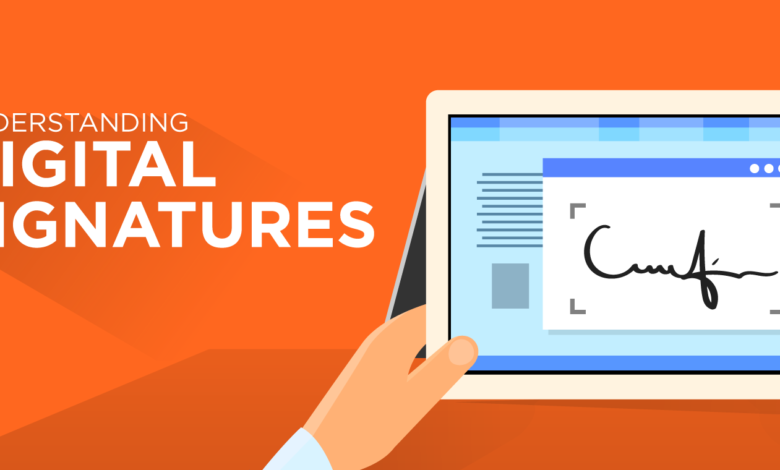Wet or Digital Signatures: Which Are Legal On Your Documents?

Today, it’s easier than ever to get paperwork signed by using digital systems. Depending on the type of document you’re trying to sign, though, it could be the case that certain forms cannot be signed digitally.
Before you fill out a digital form with your signature, make sure that the legal documents are able to be e-signed. Failing to do this could mean that the signature won’t be valid, and the document won’t be legally binding.
Getting to Know the ESIGN Act
Digital signatures are used today thanks in large part to the Federal Electronic Signatures in Global and National Commerce or ESIGN Act. The ESIGN Act was passed in 2000 to help hasten the transition to the use of electronic signatures. This legislation also aimed to streamline the digital documentation process.
The ESIGN Act makes it clear that an electronic signature can come in a variety of forms, such as symbols, sounds or processes. In order for the signature to be valid, the symbol, sound, or process must be attached to the document in question for the intended purpose of a signature. Today, eSignatures can be used in court as evidence of a signed agreement for most types of contracts. The federal government also recognizes that a digital signature is just as binding as a wet signature, or one signed in ink.
This is not the only act that affects digital signatures; every state has the opportunity to have additional laws and acts in place regarding digital signing.
What Is a Digital Signature?
Before deciding whether a digital signature is valid or not, you must make a determination about whether the signature itself is legal. If the signature was not captured in the correct manner, then the document you signed may not be binding.
Capture methods can vary, but they usually include:
- Clicking on “I Agree” when you visit a website. This suggests that you agree with the terms and conditions.
- Signing your name with a finger. This captures your actual signature.
- Using a PIN or typing in your name. Both may serve as your signature.
- Using other programs to sign documents. These programs are designed for digital documents requiring signatures.
Each of these digital signature types can be valid under the right circumstances.
What Types of Documents Can You E-Sign?
As of October 2021, over one billion people across the globe are signing documents electronically. But while many people are familiar with electronic documents, they may not have looked into the validity of a digital signature.
Every U.S. state recognizes the validity of electronic signatures, although the way a signature is captured matters. For the most part, legal documents can be signed digitally — but not all digital signatures will make binding contracts as not all document types can be e-signed.
The National Telecommunications Information Administration (NTIA) identifies the kinds of documents that you usually cannot e-sign. These include:
- Documents that are needed to transport hazardous materials. This may include documents for pesticide transportation, for example.
- Life insurance policy termination notices. These have special delivery and signing requirements.
- Notices about utility services. Cancellations must be signed by hand.
- Court orders. In fact, any official court documents need to be signed by hand.
- Wills and testamentary trusts. The reason for this is generally because multiple people need to witness the signing.
- State statutes. In particular, this includes state statutes about adoption, family law and divorce.
- Notices of foreclosure, eviction, or default. This applies only if the property is a primary residence.
- Recall notices. This only applies when the recall causes a risk to others’ health and safety.
Keep in mind that jurisdictions do vary, so the legality of e-signature use can vary from state to state — and in some cases, they may even vary across different counties in the same state.
Can You Sign a Mortgage With an E-Signature?
The simple answer is yes. According to the ESIGN Act and a second piece of legislation, the Uniform Electronic Transactions Act or UETA, both allow you to sign documents with an electronic signature. Both establish that a digital signature holds the same weight as a hard-copy one. Many banks and financial institutions use electronic signatures today, but yours may ask you to sign in a different way. Some still prefer traditional paperwork, in which case you will need to sign in ink.
What About Business Documents? Can You Sign Them Digitally?
For the most part, yes. Business documents and those for other personal affairs can be signed digitally. Some examples of the kinds of business documents you can sign electronically include purchase offers, lease agreements, real estate agreements and liability waivers. Permission slips, rental agreements, offer letters and other kinds of contracts may also be signed digitally.
How Should You Send Legal Documents for E-Signatures?
If you’re going to send legal documents to get e-signatures, make sure you use the right kind of software to transmit the documents. Using Adobe Acrobat for PDF files is a good option, since most people have access to this tool. With Adobe Acrobat, you can make sure your documents are signed in an agreed-upon format and request signatures too. These files can also be locked and signed digitally. Beneficially, if the form has to be filled out on paper, PDF files are easy to print and sign, too.
E-signatures are usually allowed today, but it’s a good idea to clarify before signing legal documents with your digital tablet or device. In some cases, you may still need to use a pen and ink and sign traditionally.






